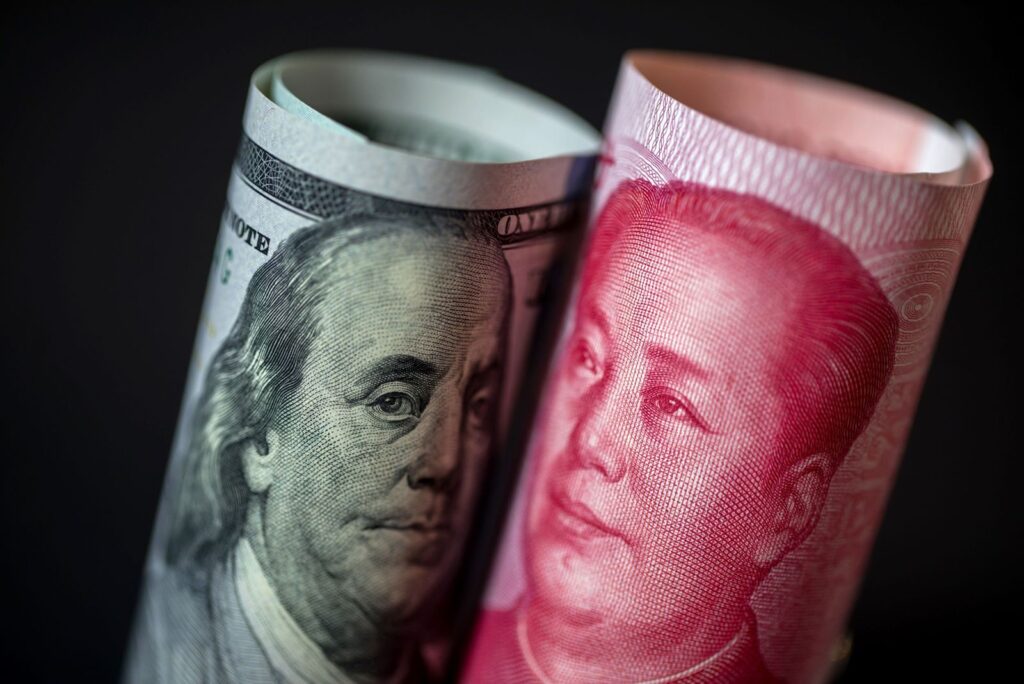The US dollar is often considered the closest thing to a global currency.
It is the most widely used medium in international trade transactions and the primary reserve currency held by central banks around the world.
Dozens of countries peg their local currencies to the dollar to maintain financial stability.
How Did the US Dollar Dominance Story Start?
The dollar’s dominance has been entrenched since the end of World War II, when the United States emerged as a global economic and military superpower.
Thanks to its strong economy and stable political system, the US dollar has become a safe haven for investors during times of crisis—such as the 2008 financial crash, when the dollar rose more than 26% against major currencies.
Why Is the US Dollar So Dominant?
- Size of the US Economy:
The American economy equals the combined GDP of China, Japan, and Germany.
The US also hosts the world’s largest corporations and a bond market worth more than $27 trillion. - Political and Economic Stability:
Strong US institutions, the rule of law, and the independence of the Federal Reserve make the dollar reliable and secure. - Historical Momentum:
While reserve currencies shift over centuries (e.g., from the British pound to the dollar), today’s deeply interconnected financial system makes replacing the dollar extremely difficult in the near future.
Winners and Losers of a Strong Dollar
- United States:
The U.S. can sustain record-high debt—over $34 trillion—without excessive borrowing costs.
This strengthens its global financial influence. - Rest of the World:
Federal Reserve policies, such as raising interest rates, directly impact other currencies—causing inflation or capital flight in countries unable to keep pace. - International Politics:
Washington leverages the dollar as a political weapon through sanctions.
Nations like Iran and Russia have faced financial isolation after being cut off from SWIFT.
Is the Dollar’s Dominance Under Threat?
Despite its strength, several factors pose risks to the dollar’s supremacy:
- U.S. debt ceiling crises, which raise doubts about America’s fiscal discipline.
- Overuse of sanctions, which motivates some countries to find alternatives.
- Economic blocs like BRICS, pushing for less reliance on the dollar, particularly in energy trade.

Possible Alternatives to the Dollar
- Euro: The second-largest reserve currency, but weakened by political divisions within the EU.
- Chinese Yuan: A key competitor, but limited by China’s closed capital markets and lack of transparency.
- Gold & Bitcoin: Considered hedges against dollar dominance, though gold has limited payment utility and cryptocurrencies lack stability and global acceptance.
Will the US Dollar Lose Its Status?
For now, no serious challenger is capable of dethroning the dollar.
Despite increasing speculation about a post-dollar world, the reality remains that the dollar is still the undisputed global currency—and will remain so unless a major economic crisis or systemic shift occurs in the international financial order.








